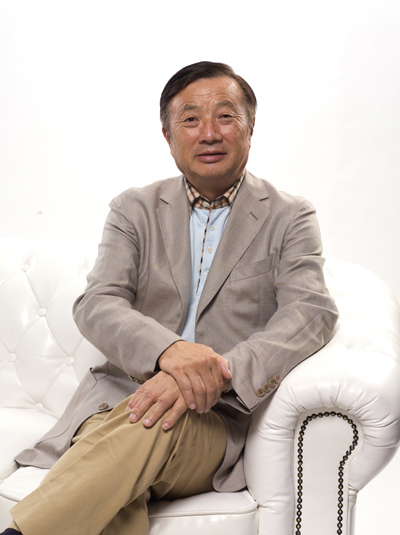The piggy in the middle that is Huawei is still being asked to justify its existence in the lucrative 5G infrastructure market, but maybe we are now finally approaching the end-game, says Antony Savvas.
While the founder of Huawei, Ren Zhengfei and his acolytes continue their non-stop round-the-world tour rubber-stamping 5G networking, data centre and sub-sea cable deals in countries including Pakistan, Russia, Chile, Singapore, South Africa, Algeria, Bahrain, the UAE and other developing markets, many developed countries continue to shout from the sidelines.

However, the louder these countries shout about potential Huawei security threats around spying on behalf of the Chinese government, the more networking deals Huawei seems to be signing. Maybe it’s about time they just continued the game and took their turn as piggy. The Trump regime would like that piggy to be Qualcomm when it comes to 5G, and Sweden and Finland would no doubt like to shout for Ericsson and Nokia, respectively.
Bad smell
One may or not be excused for believing the bad smell around Huawei is possibly more down to business with a large dose of nationalism thrown in rather than spying. The US government has already blocked Broadcom from acquiring Qualcomm, as it believed it wouldn’t be able to compete in ongoing 5G research & development (R&D) under Broadcom’s ownership in Singapore against the likes of Huawei. It preferred that great US company to stay American, and close to the US military.
Speaking of the military, much is made of Huawei’s Ren Zhengfei’s former membership of the People’s Liberation Army in China, the biggest army in the world which still sucks in large swathes of poor Chinese from the interior, of which he was one. And also his membership of the Chinese Communist Party is mentioned.
Does it really matter in China’s case, as it is clearly good business to be a member of the Chinese Communist Party, as it owns, part owns or has a major say over most things that move in the place? It used to be the same case in the old Soviet Union, if you wanted international travel and to go into business – partly for the benefit of the Motherland – you had to be a party member.
Walkie Talkies
Maybe it’s also a little candid to mention it, but I will anyway; where did all those dinky Nokia and Ericsson mobile phones originate from, too? It was of course from the military training fields of Scandinavia where those companies brilliantly decided to soup-up army walkie talkies.
Military service is also still popular in Scandinavia and supported by big business. And as for talent, where do most top telcos get their engineers from? From the best signals regiments that countries can muster, of course.

‘Leak’
While the recent “leak” in the UK media pointed towards that nation’s spooks giving approval to “non-core” 5G network equipment from Huawei being deployed in the UK – despite the US government wanting none of it in western 5G infrastructure – maybe the ongoing trade talks between the US and China will eventually help to get the “spying” monkey off Huawei’s back.
China is the world’s biggest potential cloud market, and Chinese president Xi Jinping has already offered the possibility of allowing western companies like IBM, Microsoft, Amazon and Google to open their cloud businesses in mainland China as part of “free-trade zones”.
In return for this potentially lucrative opportunity, such companies would have to keep Chinese citizens’ data inside the country and be subject to the same Great Firewall of China rules, but the move would help address one of Trump’s big complaints that Chinese firms overall have easier access to US markets than the other way round.
It would be somewhat ironic that a president of Trump’s ilk may well be the man to help thaw the relations between the two countries, in the same way that publicly raving anti-communist president Nixon did in the 1970s. And why not? After all, it wasn’t under Trump’s watch that German Chancellor Merkel allegedly had her Nokia phone hacked by the US National Security Agency, was it?
The author is freelance telecom writer, Antony Savvas.
Comment on this article below or via Twitter: @VanillaPlus OR @jcvplus






